
Riksgränsen: Sweden's Arctic Wonderland
Nestled in the far north of Sweden, Riksgränsen is a unique destination where the arctic wilderness meets the thrill of world-class skiing. Known as the northernmost ski resort in the world, it offers an unparalleled experience for winter sports enthusiasts. From late February to mid-June, the snow-covered slopes are perfect for skiing and snowboarding, attracting visitors from across the globe. Riksgränsen is not just about skiing. The breathtaking landscape is a haven for nature lovers. You can explore the stunning arctic scenery with activities like snowmobiling, dog sledding, and ice fishing. In the summer months, the midnight sun provides endless daylight, perfect for hiking, mountain biking, and fishing in pristine lakes. The small, charming village of Riksgränsen offers cozy accommodations and a warm, welcoming atmosphere. Local cuisine, featuring fresh Arctic char and reindeer, is a culinary highlight. Don't miss the chance to experience the Northern Lights during the winter, a magical display that will leave you in awe. Whether you're seeking adventure or tranquility, Riksgränsen has something for everyone.
Local tips in Riksgränsen
- Visit between late February and mid-June for the best skiing conditions.
- Experience the midnight sun by visiting in the summer months.
- Book accommodations early, especially during peak winter season.
- Don't miss the local cuisine, especially dishes featuring Arctic char and reindeer.
- Pack warm clothing even in summer, as temperatures can be chilly.
- Try to see the Northern Lights during winter for an unforgettable experience.
Riksgränsen: Sweden's Arctic Wonderland
Nestled in the far north of Sweden, Riksgränsen is a unique destination where the arctic wilderness meets the thrill of world-class skiing. Known as the northernmost ski resort in the world, it offers an unparalleled experience for winter sports enthusiasts. From late February to mid-June, the snow-covered slopes are perfect for skiing and snowboarding, attracting visitors from across the globe. Riksgränsen is not just about skiing. The breathtaking landscape is a haven for nature lovers. You can explore the stunning arctic scenery with activities like snowmobiling, dog sledding, and ice fishing. In the summer months, the midnight sun provides endless daylight, perfect for hiking, mountain biking, and fishing in pristine lakes. The small, charming village of Riksgränsen offers cozy accommodations and a warm, welcoming atmosphere. Local cuisine, featuring fresh Arctic char and reindeer, is a culinary highlight. Don't miss the chance to experience the Northern Lights during the winter, a magical display that will leave you in awe. Whether you're seeking adventure or tranquility, Riksgränsen has something for everyone.
When is the best time to go to Riksgränsen?
Iconic landmarks you can’t miss
Flottsbro
Discover the adventure of Flottsbro, a ski resort and hiking area in Huddinge, Sweden, offering year-round outdoor fun and stunning natural beauty.
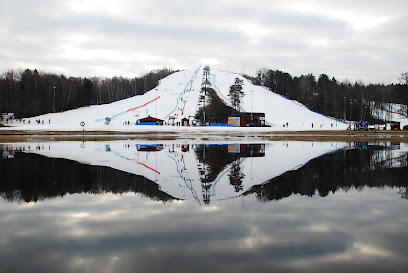
Ulricehamns Ski Center
Experience thrilling skiing and breathtaking landscapes at Ulricehamns Ski Center, Sweden's ultimate adventure sports destination.
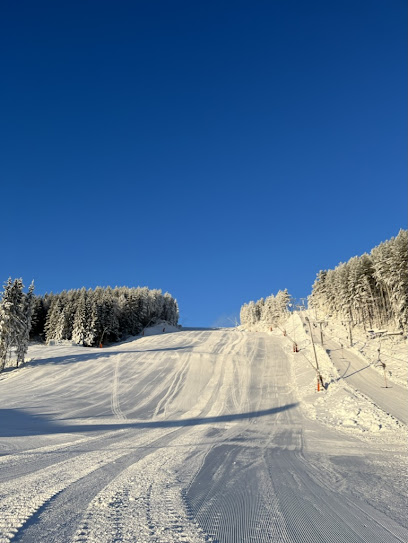
Elgåfossen
Discover the breathtaking beauty of Elgåfossen in Halden, Norway, where nature's wonder meets serene landscapes and outdoor adventure.
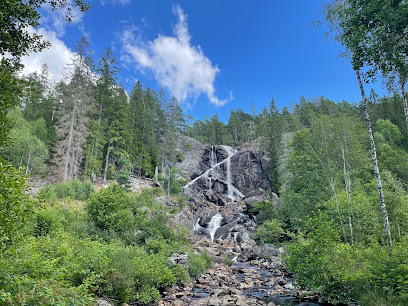
Bydalsfjällen
Experience the thrill of skiing and the serenity of nature at Bydalsfjällen, a premier ski resort in Sweden's breathtaking landscape.
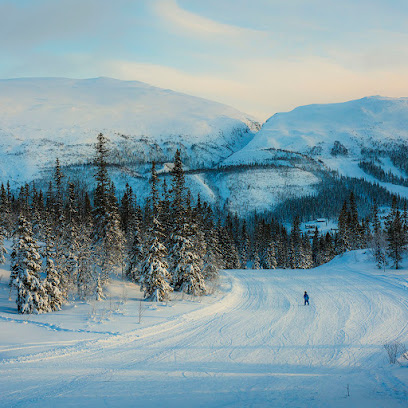
Riksgrensen Riksvei 31
Discover the breathtaking landscapes and rich history of Riksgrensen, Norway's scenic border crossing to Sweden, perfect for outdoor adventures and exploration.
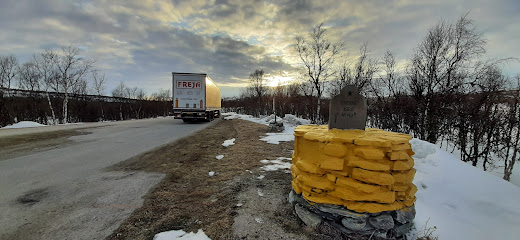
Riksberg
Experience the charm of Riksberg, a serene bus stop in Töreboda surrounded by beautiful Swedish landscapes, ideal for travelers seeking peace.
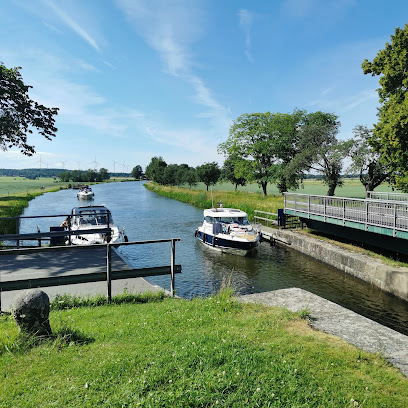
Stadsgränsen
Discover the charm of Eskilstuna through Stadsgränsen, your essential transportation hub to explore the city's rich culture and attractions.
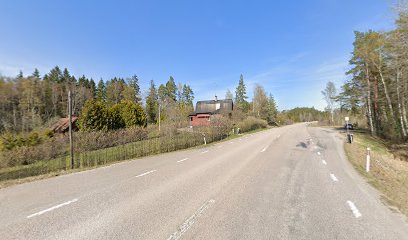
Unmissable attractions to see
Gröna Lund
Explore Gröna Lund, Stockholm's historic amusement park, offering thrilling rides, live music, and delightful fairground fun for all ages.
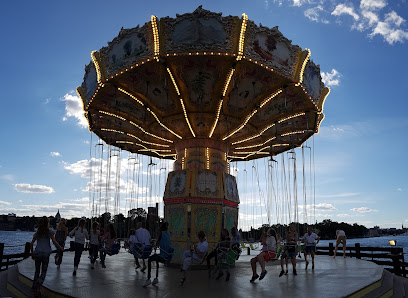
Flottsbro
Explore Flottsbro, a captivating tourist attraction in Huddinge, Sweden, offering amazing hiking trails and thrilling ski slopes for all adventure lovers.
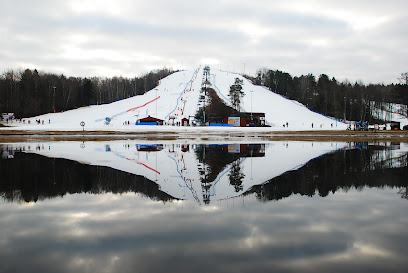
Ulricehamns Ski Center
Experience the thrill of skiing, cycling, and hiking at Ulricehamns Ski Center, a premier destination in Sweden for outdoor enthusiasts and adventure seekers.
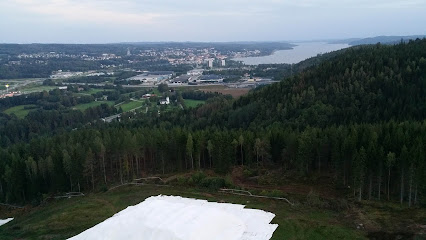
Sunne Ski & Bike (with Sunne Bike Park)
Experience the ultimate adventure at Sunne Ski & Bike, where thrilling skiing and biking meet exceptional dining amid stunning Swedish landscapes.
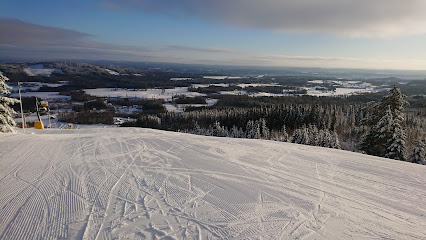
Elgåfossen
Discover the stunning beauty of Elgåfossen, a breathtaking waterfall in Halden, Norway, perfect for nature lovers and adventure seekers alike.
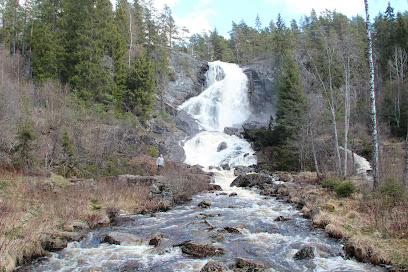
Tolvmannabacken AB
Discover the thrill of cycling at Tolvmannabacken AB, a premier cycling park in Sweden offering stunning trails and breathtaking views.
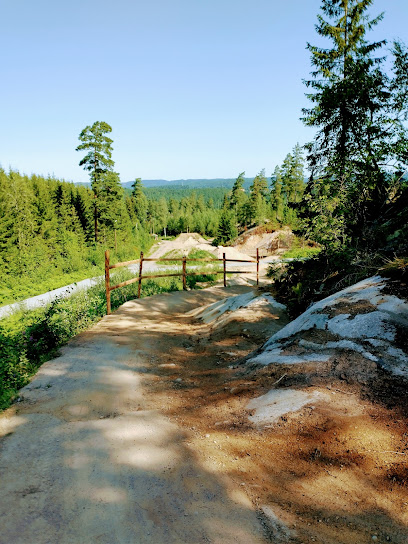
Mullsjö Alpin AB
Discover the thrill of winter sports in Sweden's stunning Mullsjö Alpin, a ski resort offering adventure, relaxation, and breathtaking scenery.
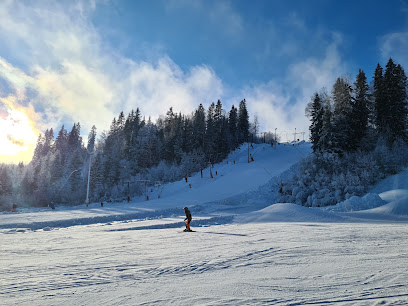
Storstenshöjden
Experience the magic of winter at Storstenshöjden, a premier ski resort in Garphyttan, Sweden, offering fun and adventure for all ages.
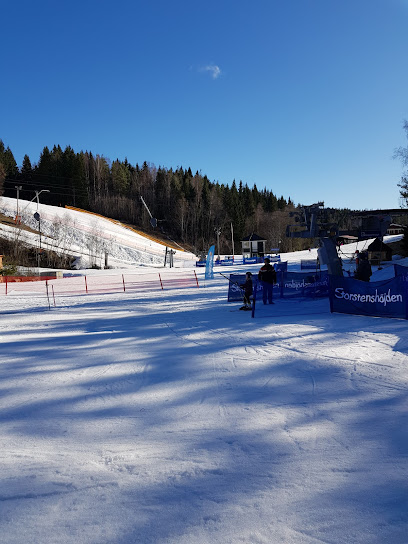
STF Lunndörrstugan
Experience the tranquility and beauty of Swedish nature at STF Lunndörrstugan, your perfect mountain cabin retreat for hiking and relaxation.
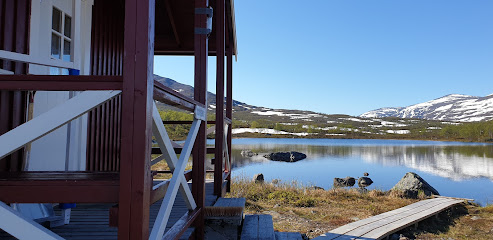
Bydalsfjällen
Experience the thrill of skiing and the beauty of nature at Bydalsfjällen, Sweden's premier ski resort, perfect for all winter sports enthusiasts.
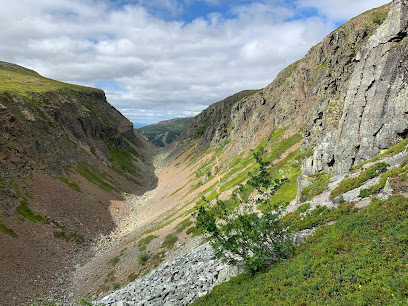
Kjølen Sportcenter
Discover Kjølen Sportcenter, a premier ski resort in Ørje, Norway, offering thrilling winter sports and breathtaking snowy landscapes for all adventurers.
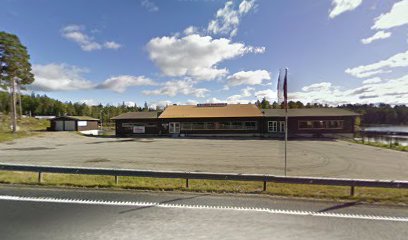
Essential places to dine
Skansen
Explore Sweden's rich heritage at Skansen: an enchanting open-air museum featuring historical buildings, native wildlife, and beautiful gardens.
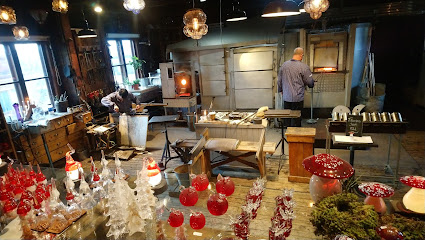
Gröna Lund
Experience thrills and family fun at Gröna Lund Amusement Park in Stockholm - where history meets excitement!
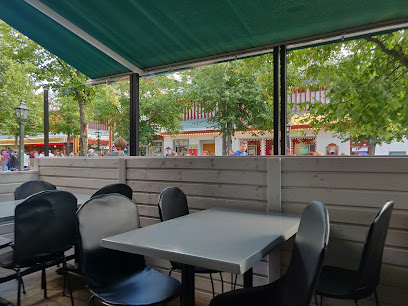
Aifur
Discover Aifur in Stockholm: Experience authentic Scandinavian cuisine in a vibrant setting rich with cultural heritage.
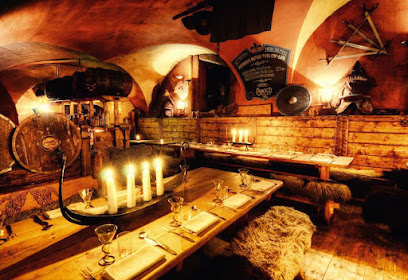
Tak
Discover the fusion of Swedish and Asian flavors at Tak in Stockholm—where culinary innovation meets stunning city views.
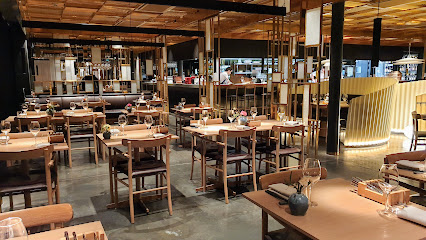
Glashuset Restaurant & Bar
Discover Glashuset Restaurant & Bar: A waterfront haven serving authentic Swedish cuisine in a stunning setting.
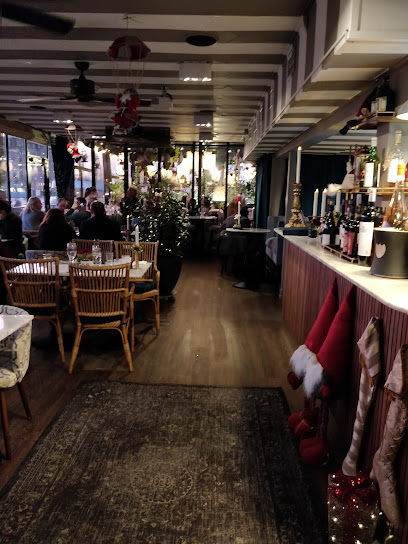
Flottsbro
Discover adventure at Flottsbro: Skiing thrills in winter and hiking escapes in summer await at this stunning Swedish destination.
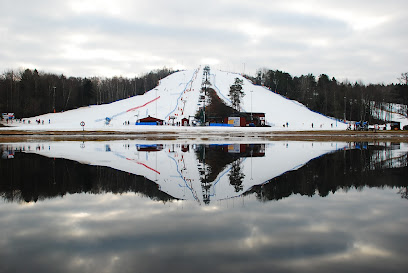
Skidcenter
Experience top-notch ski rentals and expert instruction at Skidcenter in Åre - your gateway to winter adventure.
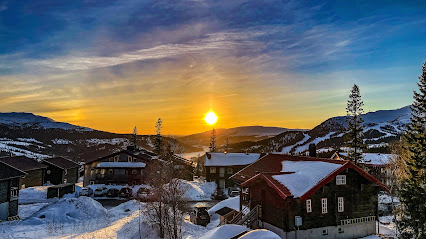
Rosendals Trädgårdskafé
Discover tranquility at Rosendals Trädgårdskafé in Stockholm—where organic delights meet stunning garden views.
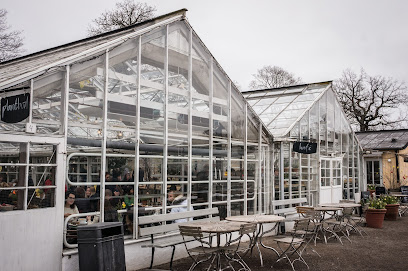
Systembolaget
Explore Systembolaget in Stenungsund: A Unique Journey into Sweden's Alcohol Retail Culture with Quality Beverages.
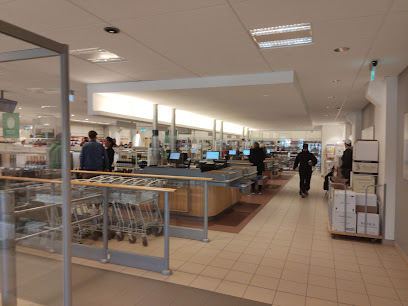
The Vasa Museum Restaurant
Experience exquisite Swedish cuisine at The Vasa Museum Restaurant amidst historical maritime wonders.
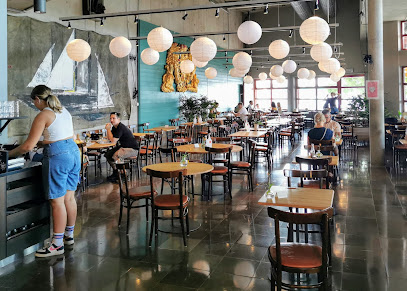
Sjön
Discover Sjön: A Culinary Haven in Jönköping Offering Exquisite Dishes Crafted from Local Ingredients.
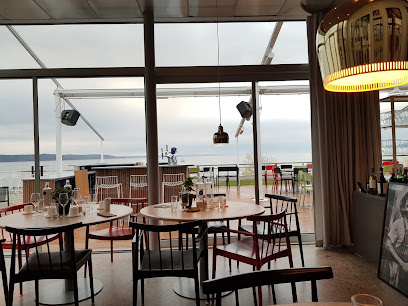
Skansens Restauranger
Experience authentic Swedish cuisine at Skansens Restauranger in Stockholm's scenic Djurgården area.
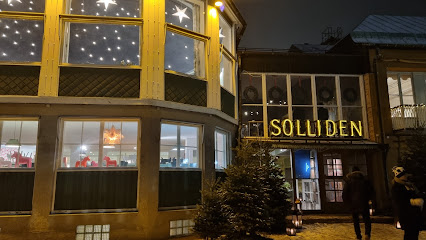
Järvsö Bergscykel Park
Discover endless biking adventures at Järvsö Bergscykel Park - perfect trails, bike rentals, and stunning scenery await!
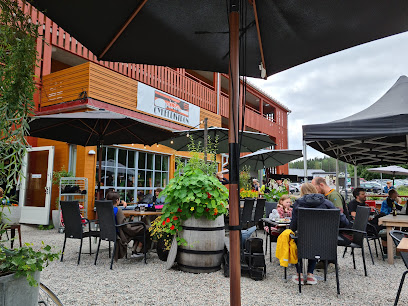
Stadshuskällaren
Experience authentic Swedish cuisine at Stadshuskällaren in Stockholm's historic City Hall – where tradition meets culinary excellence.
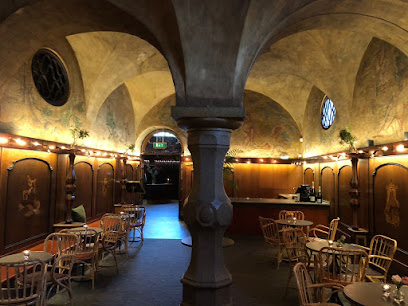
Sunne Ski & Bike (with Sunne Bike Park)
Explore breathtaking slopes and scenic bike trails at Sunne Ski & Bike – your ultimate outdoor adventure destination in Rottneros.
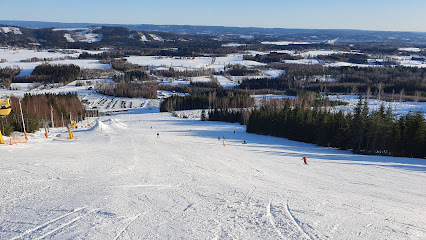
Markets, malls and hidden boutiques
Töcksfors Shoppingcenter
Explore Töcksfors Shoppingcenter, a vibrant shopping hub on the Swedish-Norwegian border, offering diverse shops, dining, and unique local finds.
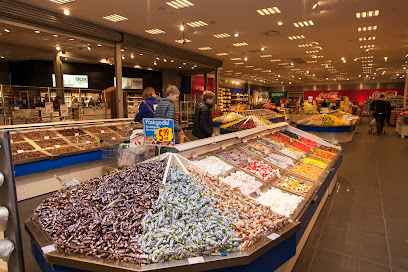
Old Town Polkagriskokeri AB
Discover the enchanting world of Swedish sweets at Old Town Polkagriskokeri AB, a candy store and handicraft museum in the heart of Stockholm's historic district.
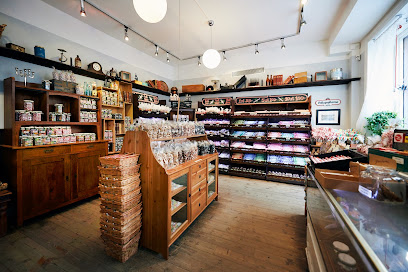
Järvsö Bergscykel Park
Discover Järvsö Bergscykel Park, Sweden's premier cycling destination, featuring trails for all skill levels and great amenities for a perfect outdoor adventure.
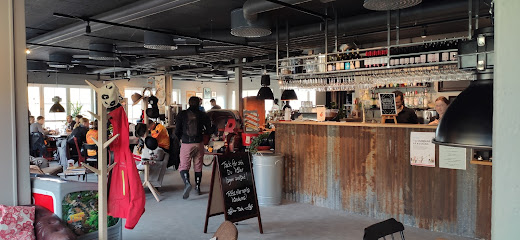
Sunne Ski & Bike (with Sunne Bike Park)
Explore the thrilling slopes of Sunne Ski & Bike in winter and scenic trails in summer, the perfect outdoor destination for adventure lovers.
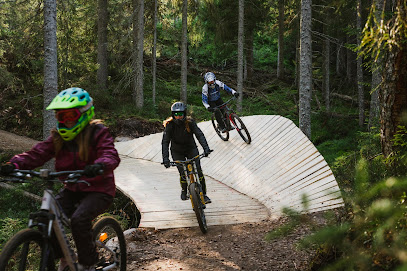
ICA Nära Riksten
Discover fresh produce and local specialties at ICA Nära Riksten, where grocery shopping meets delightful catering services in Tullinge.
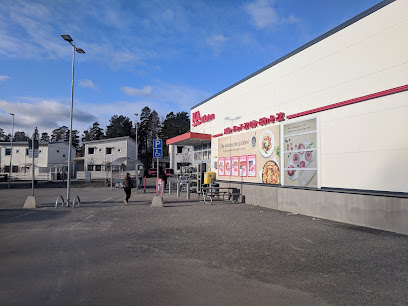
Skistore
Explore Skistore in Gothenburg for top-quality ski equipment and expert advice, ensuring unforgettable adventures on the slopes.
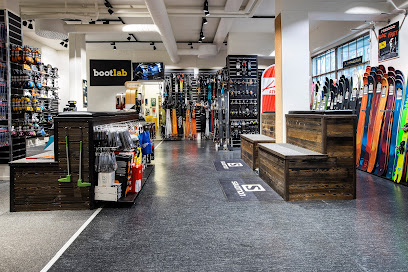
The Old Town Souvenir
Explore The Old Town Souvenir for unique gifts and traditional Swedish crafts in the heart of Stockholm's historic Gamla Stan.
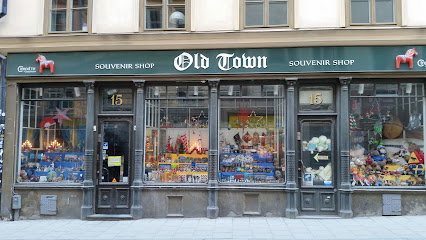
Prästgården Annerstad
Explore the delightful farm shop of Prästgården Annerstad, offering local produce and handmade goods in a charming countryside setting.
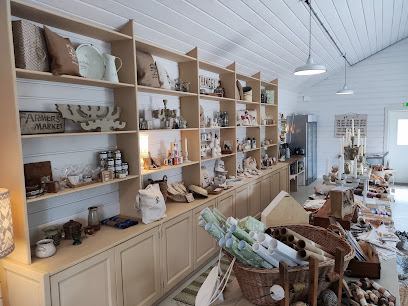
Dala Shop
Explore the charm of Swedish craftsmanship at Dala Shop, where unique gifts and local artistry come together in the heart of Stockholm.
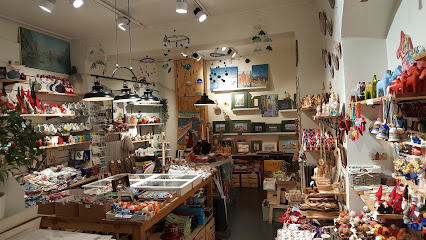
Samsonite
Explore high-quality luggage and stylish leather goods at Samsonite in Kungsbacka, a must-visit for every discerning traveler.
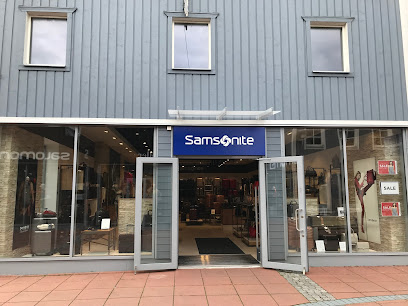
Närstads Bags
Explore a diverse range of stylish and durable luggage and leather goods at Närstads Bags in Kalmar, Sweden.
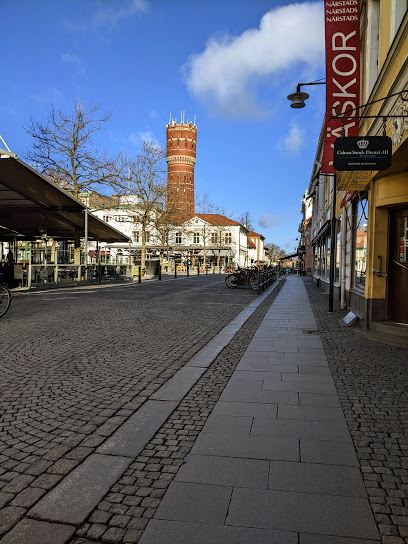
Systembolaget
Explore Systembolaget in Sorsele for an unparalleled selection of wines and spirits, showcasing the best of Swedish alcohol retail culture.
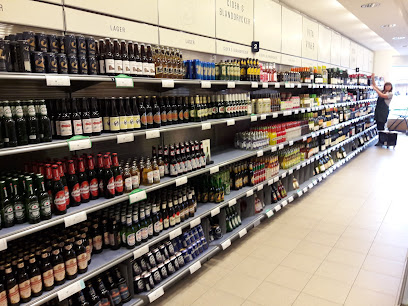
Apans Andra Hand
Explore the charm of vintage fashion at Apans Andra Hand, Stockholm's premier second-hand store for unique clothing and sustainable treasures.
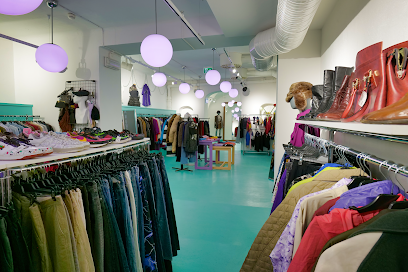
Patches and Pins
Explore Patches and Pins in Sundsvall for unique clothing and accessories that reflect your individual style in a vibrant shopping atmosphere.
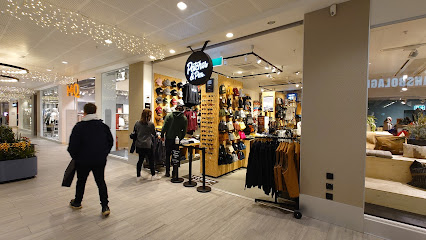
Kronans Apotek Arvidsjaur
Discover Kronans Apotek Arvidsjaur: Your essential pharmacy stop for health, wellness, and local advice during your Swedish adventure.
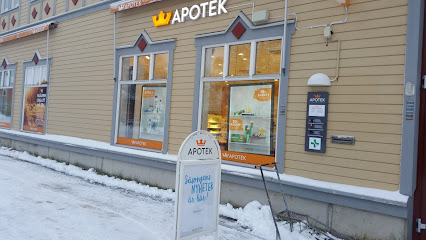
Essential bars & hidden hideouts
Gröna Lund
Discover the thrill of Gröna Lund, Stockholm's historic amusement park, offering rides, live music, and unforgettable family fun in a scenic waterfront location.
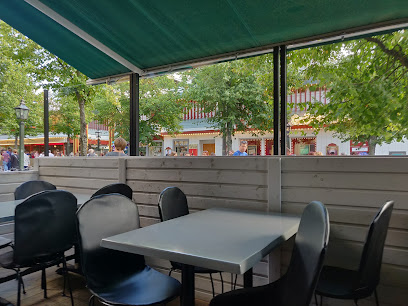
Steam Hotel
Discover the unique blend of industrial charm and modern luxury at the Steam Hotel in Västerås, your ideal retreat for relaxation and adventure.

Hard Rock Cafe
Discover the vibrant spirit of American cuisine and rock music at Hard Rock Cafe Stockholm, where every meal is a legendary experience.
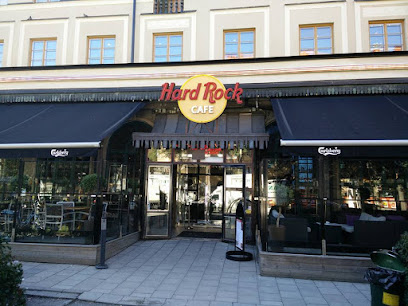
ICEBAR Stockholm by ICEHOTEL
Discover ICEBAR Stockholm by ICEHOTEL, a unique cocktail bar made entirely of ice, offering an unforgettable experience in the heart of the city.
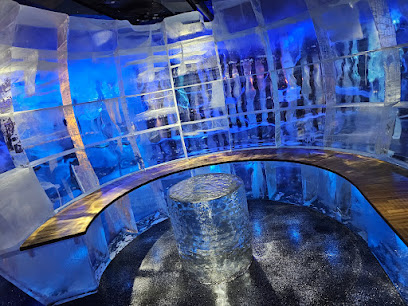
The Winery Hotel
Experience exquisite comfort and vibrant wine culture at The Winery Hotel in Solna, Sweden, a unique destination for all travelers.
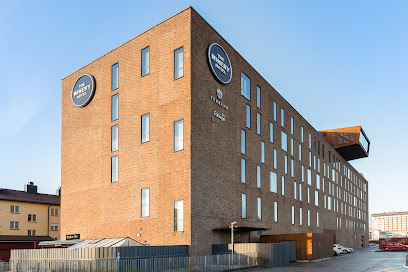
Flottsbro
Experience the thrill of skiing and the serenity of hiking at Flottsbro, Huddinge's premier outdoor destination for all seasons.
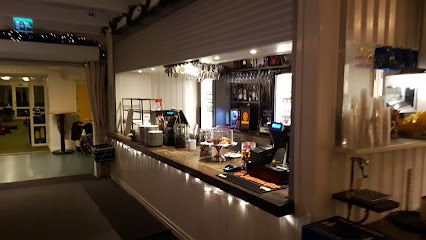
Rockbaren
Experience the vibrant rock music scene at Rockbaren, Gothenburg's top bar and music club, with live performances and affordable drinks.
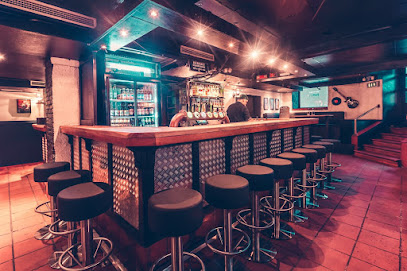
Hemmagastronomi
Discover Hemmagastronomi: A Culinary Paradise in Luleå Offering Exquisite Flavors in a Charming Atmosphere.
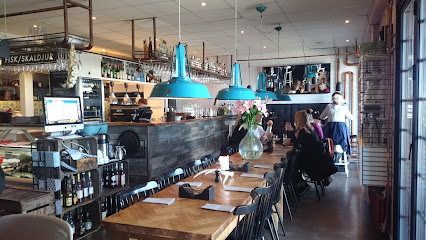
Scandic Göteborg Central
Discover the perfect blend of comfort and convenience at Scandic Göteborg Central, your gateway to exploring the vibrant city of Gothenburg.

The Capital
Discover The Capital, Stockholm's upscale cocktail bar offering stunning views, expertly crafted drinks, and a vibrant atmosphere for a stylish night out.
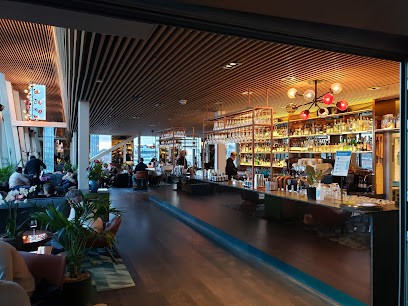
Järvsö Bergscykel Park
Experience the ultimate cycling adventure in Järvsö Bergscykel Park, a haven for mountain biking and outdoor enthusiasts.
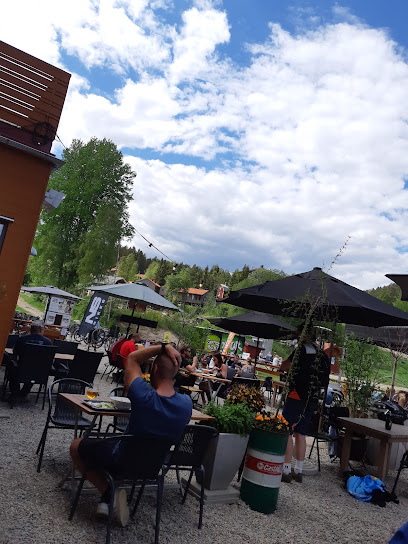
Stockholm Under Stjärnorna
Experience the vibrant nightlife of Stockholm Under Stjärnorna, where celestial decor meets exquisite cocktails in a cozy atmosphere.
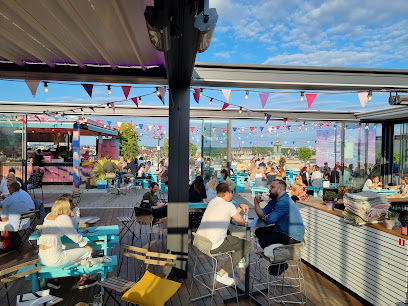
Takpark by Urban Deli
Experience breathtaking views and vibrant ambiance at Takpark by Urban Deli, Stockholm's premier rooftop bar for craft cocktails and local cuisine.
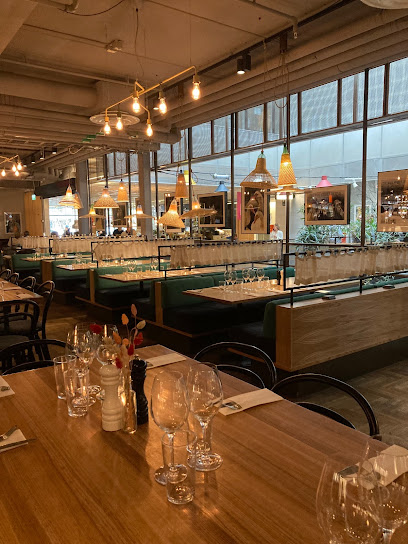
Sunne Ski & Bike (with Sunne Bike Park)
Discover the perfect blend of adventure and relaxation at Sunne Ski & Bike – your year-round destination for skiing, biking, and camping in Sweden.
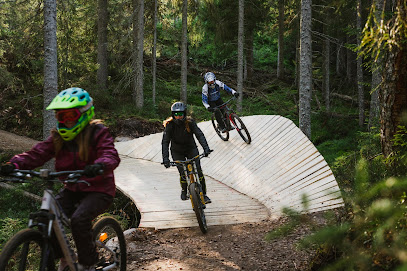
Local Phrases about Riksgränsen
-
- HelloHej
[hey] - GoodbyeAdjö
[ad-yu] - YesJa
[yah] - NoNej
[nay] - Please/You're welcomeTack
[tahck] - Thank youTack så mycket
[tahck so myk-ket] - Excuse me/SorryUrsäkta mig
[ur-saek-ta may] - How are you?Hur mår du?
[hur mor doo] - Fine. And you?Bra. Och du?
[bra. okh doo] - Do you speak English?Talar du engelska?
[tah-lar doo eng-els-ka] - I don't understandJag förstår inte
[yahg fur-stor in-te]
- HelloHej
-
- I'd like to see the menu, pleaseJag skulle vilja se menyn, tack
[yahg skool-le vil-ya say meny-n, tahck] - I don't eat meatJag äter inte kött
[yahg eh-ter in-te shut] - Cheers!Skål!
[skawl] - I would like to pay, pleaseJag skulle vilja betala, tack
[yahg skool-le vil-ya be-ta-la, tahck]
- I'd like to see the menu, pleaseJag skulle vilja se menyn, tack
-
- Help!Hjälp!
[yelp] - Go away!Gå iväg!
[go ee-vayg] - Call the Police!Ring polisen!
[ring po-lee-sen] - Call a doctor!Ring en läkare!
[ring en lay-kar-e] - I'm lostJag är vilse
[yahg air vil-se] - I'm illJag är sjuk
[yahg air shuuk]
- Help!Hjälp!
-
- I'd like to buy...Jag skulle vilja köpa...
[yahg skool-le vil-ya sher-pa...] - I'm just lookingJag tittar bara
[yahg tee-tar ba-ra] - How much is it?Vad kostar det?
[vad kost-ar det] - That's too expensiveDet är för dyrt
[det air fur deert] - Can you lower the price?Kan du sänka priset?
[kan doo san-ka pre-set]
- I'd like to buy...Jag skulle vilja köpa...
-
- What time is it?Vad är klockan?
[vad air klok-kan] - It's one o'clockKlockan är ett
[klok-kan air et] - Half past (10)Halv tio
[halv tee-o] - MorningMorgon
[mor-gon] - AfternoonEftermiddag
[ef-ter-meed-ag] - EveningKväll
[kvel] - YesterdayIgår
[ee-gor] - TodayIdag
[ee-dag] - TomorrowImorgon
[ee-mor-gon] - 1Ett
[et] - 2Två
[tvo] - 3Tre
[tray] - 4Fyra
[fyra] - 5Fem
[fem] - 6Sex
[sesh] - 7Sju
[shoo] - 8Åtta
[ot-ta] - 9Nio
[nee-o] - 10Tio
[tee-o]
- What time is it?Vad är klockan?
-
- Where's a/the...?Var är en/the...?
[var air en/the] - What's the address?Vad är adressen?
[vad air ad-ress-en] - Can you show me (on the map)?Kan du visa mig (på kartan)?
[kan doo vee-sa may (po kart-an)] - When's the next (bus)?När går nästa (buss)?
[nair gor nes-ta (boos)] - A ticket (to ....)En biljett (till ....)
[en bil-yet (til)]
- Where's a/the...?Var är en/the...?
History of Riksgränsen
-
Riksgränsen, which translates to 'the National Border,' is a small locality in Sweden, nestled in the northern part of the country near the Norwegian border. Its origins date back to the late 19th century when the construction of the Iron Ore Line (Malmbanan) began. The railway was designed to transport iron ore from the mines in Kiruna and Gällivare to the ice-free port of Narvik in Norway. This led to the establishment of Riksgränsen as a key transit point and settlement.
-
The construction of the Iron Ore Line started in 1883 and was completed in 1902. The line was a significant engineering feat, traversing some of the harshest and most remote terrains in Sweden. The completion of this railway not only facilitated the transport of iron ore but also spurred economic development in the region. Riksgränsen became an important stop on this route, providing essential services and accommodations for railway workers and travelers.
-
During World War II, Riksgränsen played a crucial role due to its strategic location. The Iron Ore Line was of immense importance to both the Axis and Allied powers for the transport of iron ore, a critical resource for wartime production. The area saw an increase in military activity and surveillance, but Sweden maintained its policy of neutrality throughout the conflict. The railway was heavily guarded to prevent sabotage and ensure the continuous flow of iron ore.
-
In the post-war period, Riksgränsen began to transform from an industrial hub into a popular winter sports destination. The area's unique climate, characterized by long winters and substantial snowfall, made it an ideal location for skiing and snowboarding. The first ski hotel opened in 1936, and the resort has since grown to become one of Sweden's premier winter sports destinations, attracting visitors from around the world.
-
Riksgränsen is not only known for its winter sports but also for its natural phenomena. Located above the Arctic Circle, the area experiences the Midnight Sun during the summer months, where the sun never sets, providing endless daylight. Conversely, in the winter, the region is one of the best places to witness the Northern Lights, or Aurora Borealis, thanks to its clear, dark skies and minimal light pollution.
-
The region around Riksgränsen is also rich in cultural history, particularly that of the indigenous Sami people. The Sami have lived in this area for thousands of years, and their traditions and way of life continue to influence the local culture. Visitors can learn about the Sami through various cultural experiences, including reindeer herding, traditional handicrafts, and storytelling.
Riksgränsen Essentials
-
Riksgränsen is located in the northernmost part of Sweden, close to the Norwegian border. The nearest airport is Kiruna Airport (KRN), which is about 120 kilometers away. From Kiruna, you can take a train directly to Riksgränsen, with the journey taking approximately two hours. Alternatively, you can drive from Kiruna to Riksgränsen, which offers scenic views of the Arctic landscape. During the winter season, there are also direct train connections from Stockholm to Riksgränsen.
-
Riksgränsen is a small resort town, and most of its attractions are within walking distance. For exploring the surrounding areas, renting a car is a convenient option. The town has a well-connected train station that links to other parts of Sweden and Norway. Taxis are available but can be expensive due to the remote location. During the winter months, snowmobiles are a popular mode of transport for both locals and tourists.
-
The official currency in Sweden is the Swedish Krona (SEK). Credit and debit cards are widely accepted in Riksgränsen, including in hotels, restaurants, and shops. It's a good idea to carry some cash for small purchases or in case of technical issues with card payments. ATMs are available in the larger towns nearby, so it’s advisable to withdraw cash before heading to Riksgränsen.
-
Riksgränsen is generally a very safe destination for tourists. However, it is always wise to take standard precautions. Keep an eye on your belongings, particularly in crowded areas. Be aware of your surroundings and avoid walking alone at night in isolated areas. There are no specific high-crime areas targeting tourists in Riksgränsen, but staying vigilant is always recommended.
-
In case of emergency, dial 112 for immediate assistance in Sweden. The local police and emergency medical services are available and responsive. It is advisable to carry travel insurance that covers medical emergencies and winter sports if you plan on skiing or snowboarding. There are medical facilities in nearby larger towns, and pharmacies where you can purchase over-the-counter medications.
-
Fashion: Do wear warm, layered clothing suitable for the Arctic climate, especially if visiting during winter. Avoid wearing overly casual or beachwear clothing in public areas. Religion: Do respect local customs and traditions, although Riksgränsen is not particularly religious. Public Transport: Do use public transport respectfully. It's considered polite to offer your seat to elderly passengers. Don't talk loudly or play music without headphones. Greetings: Do greet people with a handshake or a friendly wave. Swedes appreciate personal space, so avoid overly enthusiastic gestures. Eating & Drinking: Do try local delicacies and traditional Swedish food. Don't refuse food or drink offerings, as it may be considered impolite.
-
To experience Riksgränsen like a local, take advantage of the midnight sun during summer and the Northern Lights in winter. Visit the local Sámi markets, where you can buy traditional handicrafts and taste local cuisine. Engage with locals, as they are often friendly and willing to share stories about the area's history and culture. Don't miss the opportunity to try dog sledding or take a scenic train ride on the Iron Ore Line (Malmbanan), which offers breathtaking views of the Arctic landscape.
Nearby Cities to Riksgränsen
-
Things To Do in Bodø
-
Things To Do in Luleå
-
Things To Do in Rovaniemi
-
Things To Do in Oulu
-
Things To Do in Östersund
-
Things To Do in Vaasa
-
Things To Do in Trondheim
-
Things To Do in Kuopio
-
Things To Do in Jyväskylä
-
Things To Do in Molde
-
Things To Do in Tampere
-
Things To Do in Ålesund
-
Things To Do in Savonlinna
-
Things To Do in Lahti
-
Things To Do in Turku







